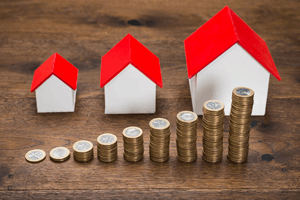Do you need to pay tax after selling your property? How to save?
 This question is in the mind of almost every property owners whether there will be any tax after selling of their property and how much is the tax and how to save it. The answer is yes, there is a tax which has to be paid after selling of property. It is called Capital Gain Tax. Here we will discuss about the tax, how is it calculated and how to save the tax in a simplified manner.
This question is in the mind of almost every property owners whether there will be any tax after selling of their property and how much is the tax and how to save it. The answer is yes, there is a tax which has to be paid after selling of property. It is called Capital Gain Tax. Here we will discuss about the tax, how is it calculated and how to save the tax in a simplified manner.
What is Capital Gain Tax?
 In very simple words, capital gain is the profit that a person realizes after he/she sells an asset for a higher price than purchased price. The tax on the profit is called Capital Gain Tax. Asset can be in terms of shares, raw materials, gold bonds etc. however, we are going to discuss here only immovable properties or real estates.
In very simple words, capital gain is the profit that a person realizes after he/she sells an asset for a higher price than purchased price. The tax on the profit is called Capital Gain Tax. Asset can be in terms of shares, raw materials, gold bonds etc. however, we are going to discuss here only immovable properties or real estates.
Capital Gain is classified as below –
- Short Term Capital Gain: If the property is hold for a period less than 36 months will be treated as Short Term and the tax rate will be 30%.
- Long Term Capital Gain: If the property is hold for more than 36 months will be treated as Long Term and the tax rate will be 20%.
In this context, we should mention that, in the current budget session, an amendment has been proposed by the Government to reduce the long term capital gain period from 36 months to 24 months.
What is Cost Inflation Index ( CII)?
Cost Inflation Index or CII is being notified by Income Tax Department. IT Department prepares it in related to inflation and increasing value of rupee. CII is used to calculate long term capital gain tax.
The Cost Inflation Index chart:
In Budget 2017, the base year of indexation has been changed from 1981 to 2001
Computation of tax
Here is how to calculate indexed cost of acquisition asset
Let us take a scenario. Mr. X purchased a flat of Rs. 30 Lakhs in June, 2005. He sells his flat with a price of Rs. 75 Lakhs in October, 2015.
As Mr. X sold his flat after 10 years, so the gain will be treated as long term.
Illustration:
Flat purchased in June 2005 = 30 Lakhs
Flat sold in October 2015 = 75 Lakhs
Indexed Cost of the property = Actual Purchase Price X (Index in the year of Sale / Index in the year of Purchase)
= Rs. 30 Lakhs X (1081/497) = Rs. 65.4 Lakhs
Sale Amount = Rs. 75 Lakhs
Capital Gain = 75 Lakhs – 65.4 Lakhs = Rs. 9.6 Lakhs
So the tax is calculated only on the capital gain. In the above illustration, the tax is calculated on the capital gain i.e. Rs. 9.6 Lakhs.
How to save?
The tax can be exempted or saved under section 54 if anyone can follow any of the below –
- Purchase of another residential property within 1 year before and 2 years after the date of property sold.
- Construction of residential property within 3 years from the date of property sold. ( the constructed property cannot be sold within 3 years of acquisition)
- Tax relief can be claimed by investing the capital gain amount in bonds issued by NHAI (National Highway Authority of India) or by RECL (Rural Electrification Corporation Limited) under section 54EC. The investment has to be done within 6 months from the date of property sold and the bond cannot be redeemed within 3 years. The rate of interest is fixed. Maximum investment can be up to Rs. 50 Lakhs in a financial year.
The illustration and definition above are provided in a simple manner to make everyone understand easily. If you like the article and think useful, share it with your friends and family.
Author: Arnab Ray

Join our list
Subscribe to our mailing list and get interesting stuff and updates to your email inbox.
